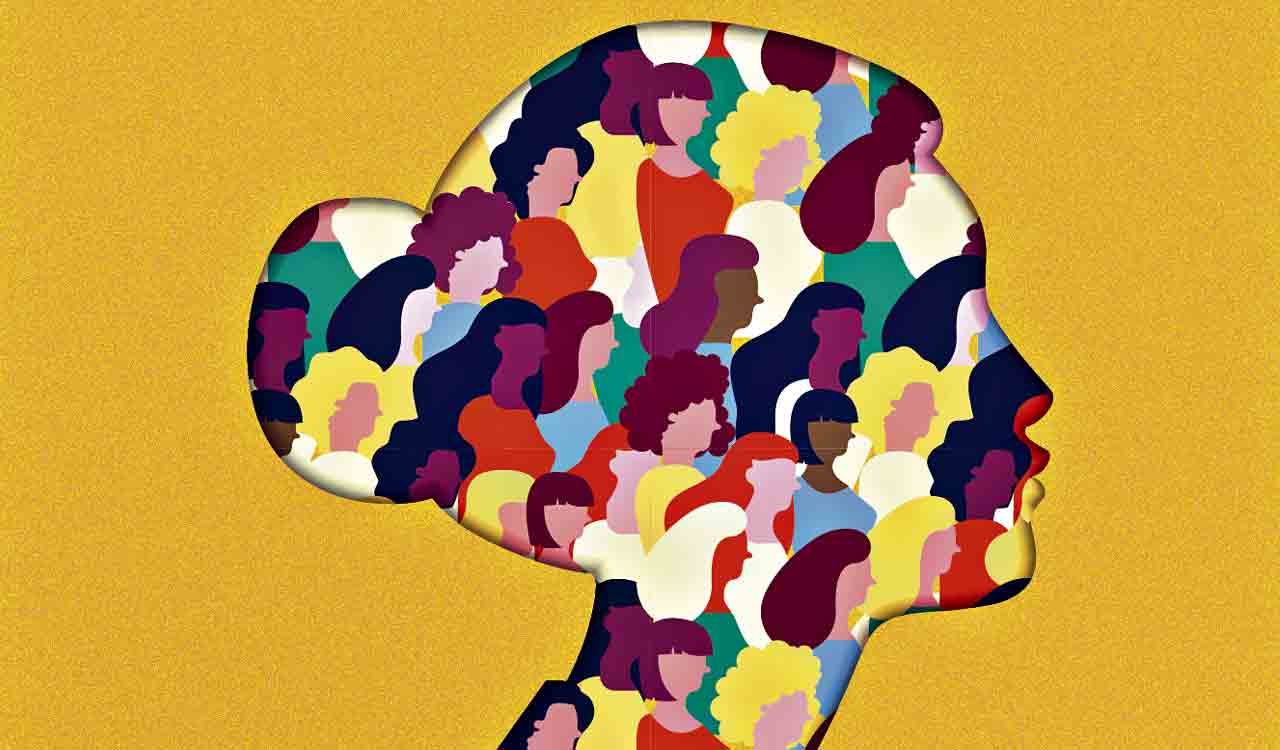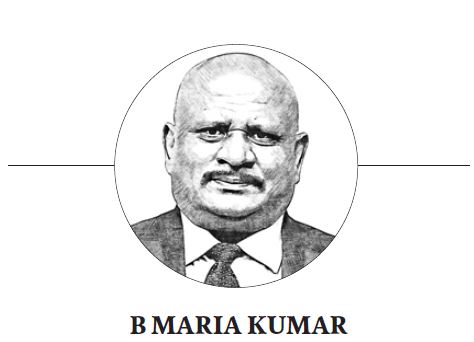Unlearning and combating destructive patterns will facilitate women to dive into a new phase of life with inner strength
Published Date – 7 March 2024, 11:59 PM

By B Maria Kumar
As International Women’s Day dawns once again, the world finds itself at the threshold of a new era filled with promise. Embracing the campaign theme of ‘Inspire Inclusion,’ the present-day women embark with renewed vigour on an odyssey to ensure the inclusion of their needs, interests and aspirations into the very fabric of society. This is also an exciting moment to rejoice in the past triumphs and eagerly anticipate the bright prospects, especially with the recent launch of a groundbreaking global fund on February 25th in Abu Dhabi by the World Trade Organisation and International Trade Centre, dedicated to empowering women financially and digitally.
Gender Inequalities
When reflecting on the significance of International Women’s Day, our attention naturally gravitates towards the myriad challenges that most women encounter as they manoeuvre the complexities of life — striving to break free from age-old constraints, excel in their pursuits and forge ahead against the odds.
We are familiar with the fabled Amazons and puranic Pramilas, known for fighting with greater fierceness and valour than male warriors. Joan of Arc, in the 15th century, donned man’s attire and bravely led the French army. Yet, the grim reality persists that the entrenched gender inequalities, crafted by human hands, have regrettably placed females at a disadvantage, trailing behind men in their quest for freedom and choice. Indeed, the repercussions of undervaluing women reverberate far and wide, corroding their morale, eroding their courage and undermining their self-esteem.
Despite women comprising half of the world’s population, men still continue to dominate in various fields — social, economic, political and scientific. It is in this respect that Mao Zedong’s famous adage, ‘women hold up half the sky’ rings true. The legend of Atlas, though it is a mythical tale, makes an apt representation of the undeniable symbolism that the mighty titan embodies both man and woman in equal halves while carrying the globe steadily.
Deep-rooted Biases
Echoing Ayn Rand’s metaphor, Atlas shrugs to such an extent that the female side of the world is sadly neglected in day-to-day affairs. Thus, any endeavour aimed at uplifting women, whether through legal reforms or administrative measures, risks being rendered ineffectual in the face of such deep-rooted biases. Moreover, the continuous disparity in ‘social equality’, a cause fervently advocated by Dr Ambedkar during his lifetime, casts a shadow over the progress of women, leaving them perennially pushed aside. In alignment with these concerns, the philosophy of American professor Michael Sandel underscores the imperative of securing the right to equality of condition, acknowledging that the upbringing and treatment of both genders have often been distinctly different, notably in contexts like India.
While financial independence may undoubtedly provide women with some level of support, they normally feel it difficult to unleash their complete capabilities because of certain outdated cultural norms. Even a highly educated woman from a marginalised background may struggle to assert her views while ensnared in the grip of socially enforced anxieties. Similarly, a senior-ranking female executive may find it challenging to command respect in situations bound by rigid traditions. Therefore, identifying and avoiding these pitfalls become paramount in the delicate process of female empowerment.
Lebanese-American thinker Nassim Nicholas Taleb argued, ‘Negative knowledge is more robust to error than positive knowledge’, a notion which resonates with the words of the celebrated Swiss author Rolf Dobelli, who stressed that ‘knowing what not to do is more potent than knowing what to do’. This emphasises the critical importance of discerning what to avoid (like for example, abstaining from engaging in unhygienic practices), a fundamental aspect in the intricate journey of women towards their self-actualisation. By understanding the essence of this ground reality and navigating the obstacles wisely, they can chart their growth paths with greater clarity and self-assurance, ultimately unlocking their full capacity.
Mental Barriers
There are some factors that stand as mental barriers which can be categorised as extrinsic and intrinsic blockades. Extrinsic ones are those illogical diktats that are forcefully thrust upon women by society. A large number of women in developing and least developed countries have been experiencing discriminatory treatment. The second type of barrier is intrinsic (self- imposed) in nature in the sense that women render themselves to debilitating beliefs which perilously permeate their mindset. These defeatist determinants are primarily — ignorance, illiteracy, irrationality, inferiority and insecurity.
Ignorance lays the foundation for superstitions, obstructing opportunities. Illiteracy prevents women from acquiring modern skills. Shockingly, India trails behind many developing countries in female literacy rates. According to the Mumbai-based International Institute of Population Studies, illiterate females exhibit lower fertility rates due to inadequate reproductive health education.
Another impediment to women’s progress is irrationality. History has shown that 18th-century Europe achieved ethical enlightenment, industrial revolution and economic development only when reason prevailed in societal thinking. The scourge of inferiority complex manifests in the silent submissiveness of victims to atrocities. South African Black Consciousness Movement leader Steve Biko astutely observed that acquiescence to sense of inferiority becomes a potent weapon in the hands of oppressors. Former American First Lady Eleanor Roosevelt famously made clear, ‘Nobody can make you feel inferior without your consent.’
Fifthly, feelings of insecurity often plague women, leaving them fearful and hesitant. Such apprehensions, inherited across generations, can have devastating impacts on personality, leading to low confidence, psychosomatic issues, unhappiness and diminished productivity. Dr Peter Belmi of the University of Virginia conducted a study revealing that individuals from economically disadvantaged positions often lack confidence in their abilities, despite being fully competent. Similarly, women, historically marginalised, are susceptible to adopting demoralising behaviours due to entrenched vulnerabilities.
Unlearning and combating these destructive patterns will facilitate women to dive into a new phase of life with inner strength. Given that women are the primary agents of socialisation for their children, much hinges on their traits, which ultimately shape the destinies of youth in the succeeding times. Today’s women are poised to transcend the antiquated misconceptions, showcasing how the gender gap can be bridged through will and grit.
The British philosopher Bertrand Russell posited that ‘One generation of fearless women could transform the world by bringing into it a generation of fearless children’. And in contrast to Hamlet’s portrayal of women with ‘frailty, thy name is woman’, it would be fitting to immortalise the enabling sentiment as ‘Majesty, thy name is woman’.





